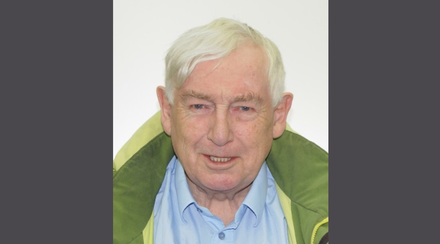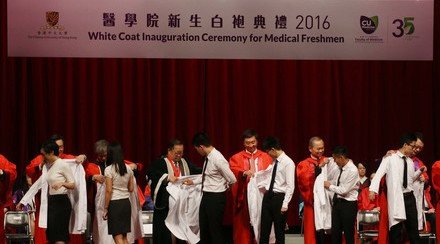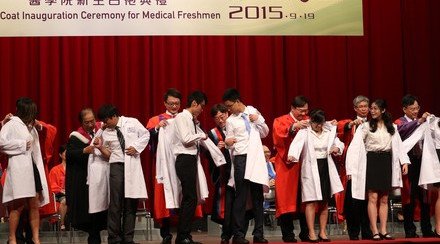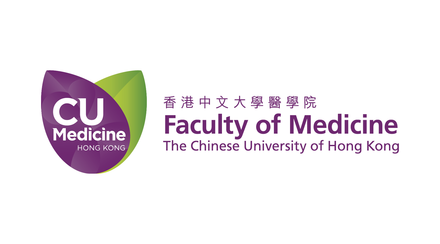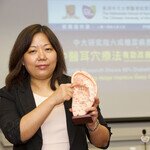New Bioethics Centre at CUHK Will Explore the Intersection of Biomedical Science, Clinical Practice and Society
In January 2014, a San Diego-based company, Illumina Inc., unveiled a genomic sequencer that could sequence 20,000 genomes a year at a cost of US$1,000 each, introducing a phase shift in the quest for personalized medicine. In 2003, when the first human genome map was published, the cost was US$1 billion. Although Illumina sells its machine for US$10 million, it seems only a matter of time before prices fall for genetic sequencing, setting off a dramatic increase in demand for services that anticipate what a human being may become, as well as diagnose and treat disease.
Non-invasive prenatal genetic and genomic testing is being used not only to screen chromosomal anomalies such as Down syndrome. The flip side of genetic screening for defects is enhancement of embryos created through in vitro fertilization by deliberate selection, with its own set of controversies. Genetically-based early diagnosis of Alzheimer's disease and dementia is making it possible to map out the needs of health systems in advance of Hong Kong's anticipated ageing crisis or 'silver tsunami'.
The bold new world of biotechnology creates profound and challenging ethical, legal, and social issues for educators, researchers, healthcare workers, policy makers and the public. To answer these challenges, the Faculty of Medicine of The Chinese University of Hong Kong (CUHK) is establishing Hong Kong's first interdisciplinary centre for bioethics housed in a leading medical school.
CUHK's Faculty of Medicine has been a pioneer in medical education, biomedical and clinical research for more than 30 years. Its scientists are producing some of the world's leading research on genetic testing for fetal aneuploidies such as Down syndrome and other conditions. The CUHK Centre for Bioethics will add a critically important dimension to its existing strengths by providing a values-oriented, biotechnology-sensitive resource for exploring the impact of these new technologies on society and health systems.
'The universal principle behind bioethics is respect for persons, defined broadly,' said CUHK Pro-Vice-Chancellor Fok Tai-fai, who is interim director of the new CUHK Centre for Bioethics.
'Why is bioethics important to Hong Kong? When you look at the speed of developments in life sciences, and the applications to medicine and health, it very quickly becomes clear that we are not keeping up in terms of what these things mean to us as a society. For example, we have tests now for the genetic markers for psychiatric, neurological, and behavioral traits and disorders, such as Alzheimer's and Huntington's disease. Who should take them? When? And what do you do next?' 'What genetic conditions should be revealed to patients and what types of testing should be promoted? What are the roles and responsibilities of healthcare services and policy makers in light of advances in genomics? These are the kinds of issues that we plan to explore as the new centre takes shape, and translate into medical education for the next generation of doctors.'
Hong Kong faces unique challenges in bioethics as a global city, Prof. Fok added. 'Hong Kong has one of the most rapidly ageing populations in the world, with an imminent surge in the number of elderly comparable to Japan, Singapore, and South Korea. What lessons can we learn, and then share, in developing the health systems that we need to prepare for our own "silver tsunami"? There are economic issues, but what about social justice, when our young people are paying the bill for elderly care? Beyond biomedical sciences, at the new CUHK Centre for Bioethics we plan to examine the full range of ethical, social, and legal issues in medicine, public health, and clinical research. We believe this will make us better educators, and reinforce CUHK as a platform for cutting edge research and clinical practice.'
'To take another example, because of its role as an aviation hub and the high levels of human and animal traffic with mainland China, Hong Kong has been on the front line of global pandemics and is likely to suffer that distinction again. Now is the time to consider ethical and social dimensions of the next pandemic.'
CUHK is working with one of the world's leading institutes for bioethics, the Hastings Center, as well as the Centre for Biomedical Ethics (CBmE) at the Yong Loo Lin School of Medicine at the National University of Singapore to establish best practice in mission development, educational approaches, best practice, and recruitment. It will preview some of these themes at a workshop from July 15-16, 2014, and a conference on population ageing and global cities from January 9-10, 2015.
Some of the world's leading bioethicists and public health experts will gather for these events, including Josephine Johnston, Erik Parens, Karen Maschke, Michael Gusmano, and Nancy Berlinger from the Hastings Center; Michael Dunn from the Ethox Centre at Oxford University; Alastair Campbell and Jacqueline Chin from CBmE; Alexandre Kalache from the International Longevity Centre; Benjamin Berkman from the National Institutes of Health (NIH); Victor Rodwin from New York University, and William Nelson from Dartmouth University.
Speakers from CUHK will include the world renowned geneticist Dennis Lo, a member of the Royal Society and the United States National Academy of Sciences; Prof. Wai-Yee Chan, head of the School of Biomedical Science; Prof. Jean Woo, director, S.H. Ho Centre for Gerontology and Geriatrics; Ethical, Legal, and Social Implications (ELSI) specialist Huso Yi; Prof. Hon-Lam Li of the Department of Philosophy; and Vice-Chancellor Joseph Sung.
The team working to set up the new CUHK Centre for Bioethics includes Prof. Fok; Prof. Francis Chan, dean of the Faculty of Medicine; Prof. Wai-Yee Chan; Prof. Hon-Lam Li; Prof. Jean Woo; Prof. Huso Yi; and Dr. Edgar Cheng Wai-kin, former Chairman of the Council of CUHK.


